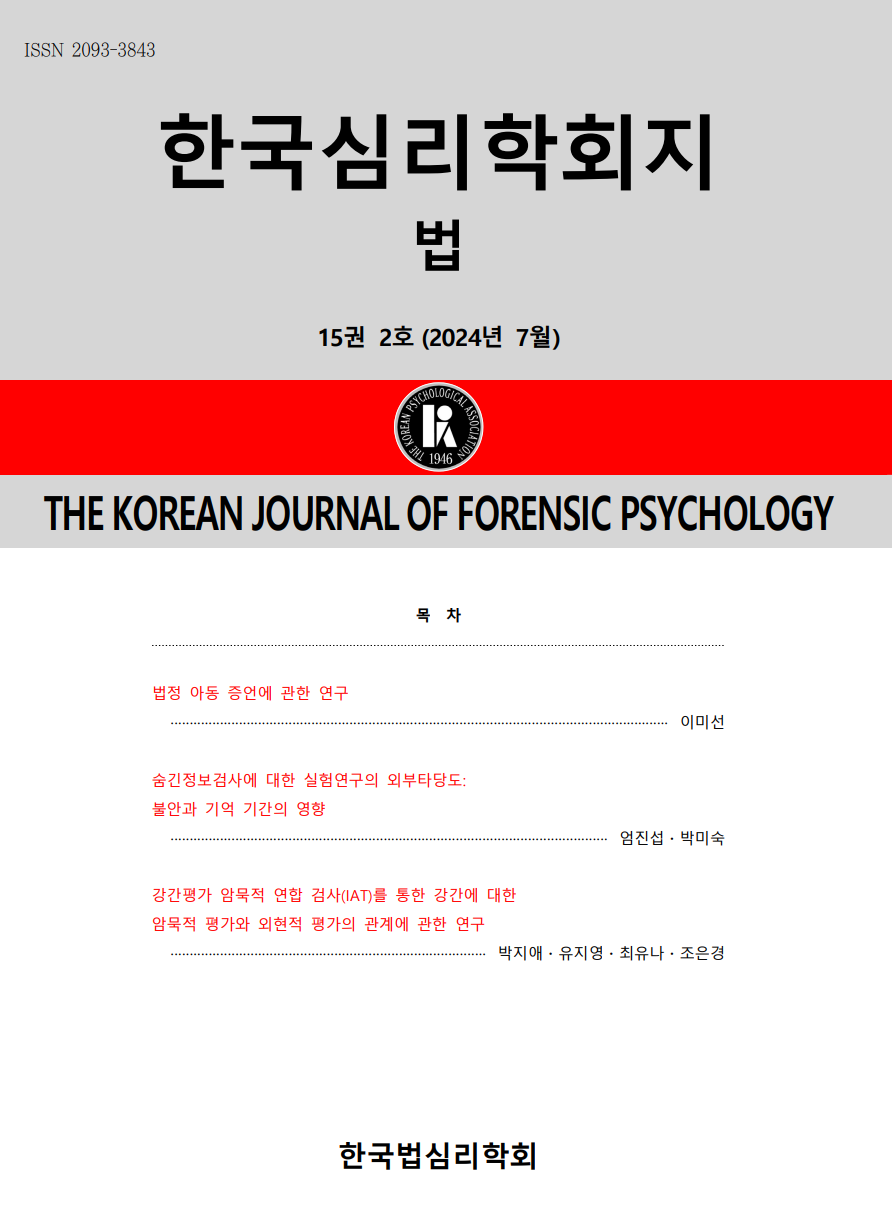open access
메뉴
open access
메뉴 ISSN : 2093-3843
ISSN : 2093-3843
This article aims to explore the possibility of forgiving among serious juvenile offenders placed in correctional facilities, as an alternative to current correctional approaches. The definition, characteristics, and misconceptions of forgiveness were outlined, and the two major models of forgiveness were introduced. The differences between the two concepts of forgiveness in psychological literature and in restorative justice were addressed. Based on the prior studies on the prevalence of adverse childhood experiences in serious juvenile delinquents and a recent forgiveness project conducted in a maximum-security prison, it was argued that it would be possible for a small number of serious juvenile offenders in correctional facilities to forgive someone who did injustice in the past, which would result in an improvement in the outcomes of correctional education and treatment. Some limitations of this article and the need of further studies were pointed out as well.